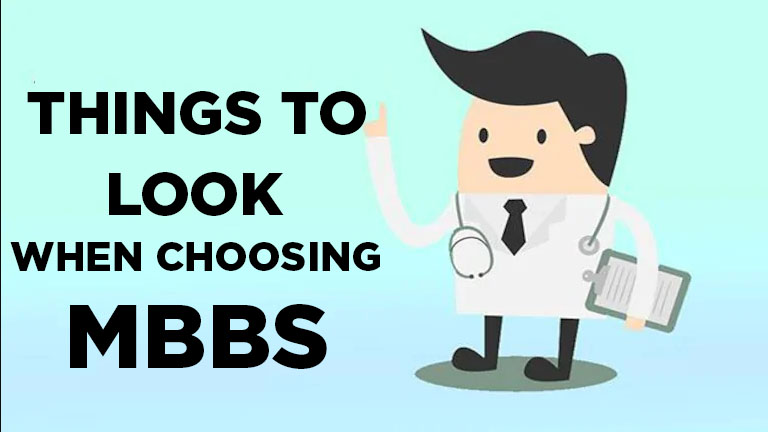Medical profession is the most essential and one among the top most profession in the modern society. To become a doctor is the most ambitious profession among most of the school children and parents. The world has never seen enough doctors and people look forward to youngsters like you choosing this noble profession, became a doctor, give the healthcare they need, and make the world a better place. In 2006, World Health Organization (WHO) reported an estimated shortage of 4.3 million doctors and healthcare professionals worldwide and since then, the demands for healthcare professionals had not seen the light of the day when supply is enough. Developing countries like India are a bit closer to achieve the prescribed number of doctors and need to increase their number to achieve the goal of healthcare for all. By becoming a doctor, you take away the pain and suffering of others by giving them proper medical treatment and care. As a doctor, you are a continuous source of happiness for people who seek your help. It is the noble profession greatest service one can render for the betterment of the society.
The most common choice among candidates is pursuing a specialization in their area of interest. At this stage too, medicos mostly prefer an MD/MS or a Diploma in Medicine. Masters in Medical Science and Technology is an upcoming stream. It imparts skills that combine science and engineering to doctors to train them for state-of-the-art medical research in Medical Imaging and Image Analysis., Biomaterials and Implants, Instrumentation, Regenerative Medicine, stem cells, Medical Statistics, Telemedicine, early detection of cancer, Immuno-technology, Recombinant DNA Technology etc. Medicos can also opt for foreign studies to pursue higher education in different countries. The process is different for different countries. For instance, PLAB is for pursuing higher studies in the UK, while USA has USMLE etc. MBBS graduates can be recruited in government job profiles in central as well as state health service departments. The Indian Defence Ministry recruits MBBS graduates for infantry units, army units, and emergency services. Top pharmaceutical firms offer lucrative opportunities to MBBS graduates in their knowledge of medicines as well as their inclination towards management roles. Another specialized filed, where medicos who have an interest in machines and their mechanisms, can try their luck in developing machines and instruments for use in health services.
MBBS in India is one of the highly preferred courses by medial aspirants across the world. Strong educational structure, dedicated professors and outstanding medical universities in India pave the way for success. To secure admission into MBBS courses in India, aspirants are required to appear in NEET. The healthy and peaceful environment in India helps students to gain knowledge more quickly and efficiently. The course syllabus is prepared considering the dynamics of the filed which equally serves the futuristic needs. It includes areas such as anatomy, paediatrics, pathology, physiology, biochemistry, community medicine, surgery and many others. In the hospital and pharmaceutical sectors there are many employment opportunities for MBBS students. India has a vast health care system, but there remain differences in the quality between rural and urban areas as well as between public and private health care. Despite this, India is a popular destination for medial students and medical tourists given relatively low cost and high-quality treatments. India is world famous for its doctors, and it produces some of the world’s best doctors from our reputable institutions every year. There are more medical colleges and teaching hospitals in India than anywhere else.
Before applying for the course, you should first see the eligibility requirements to be eligible for that course.
- Students should have cleared +2 from an approved board with subjects such as physics, chemistry, and biology with at least 50% grade and English as a core subject in an aptitude test. However, for a reserved category, the minimum level reqirment5 is 40%.
- The lower age limit for a student should be 17 years while applying for the MBBS course. The upper age cap was 25 years for unreserved candidates and 30 years for reserved candidates..
- The entrance exam should be cleared before joining MBBS. The exam is called NEET, which is a short form of National Eligibility Cum Entrance Examination.
- All private, state, central and reputable universities are all accessed on the basis of NEET score. MBBS seats are allotted through counselling based on merit list placement. In India there are 500+ medical colleges with 75,000 available seats. If we talk about AIIMS, in its 15 campuses in India including the main campus in New Delhi, it offers about 1205 seats and JIMPER provides 200 seats in Puducherry and Karaikal campuses when you take your entrance exams.
The MBBS course fee may vary from government, private and deemed universities. The average MBBS fees for government colleges in India ranges from INR 20,000 to INR 7.5 lakhs, whereas the MBBS fees for private colleges can range from INR 20 lakhs to more than 1 Cr.




